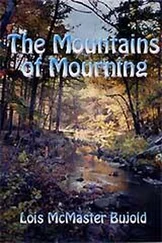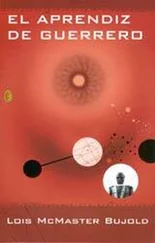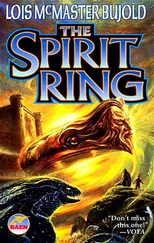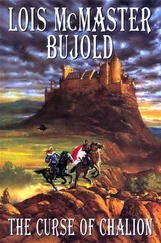Lois Bujold - The Sharing Knife - Beguilement
Здесь есть возможность читать онлайн «Lois Bujold - The Sharing Knife - Beguilement» весь текст электронной книги совершенно бесплатно (целиком полную версию без сокращений). В некоторых случаях можно слушать аудио, скачать через торрент в формате fb2 и присутствует краткое содержание. Жанр: Фантастика и фэнтези, на английском языке. Описание произведения, (предисловие) а так же отзывы посетителей доступны на портале библиотеки ЛибКат.
- Название:The Sharing Knife: Beguilement
- Автор:
- Жанр:
- Год:неизвестен
- ISBN:нет данных
- Рейтинг книги:5 / 5. Голосов: 1
-
Избранное:Добавить в избранное
- Отзывы:
-
Ваша оценка:
- 100
- 1
- 2
- 3
- 4
- 5
The Sharing Knife: Beguilement: краткое содержание, описание и аннотация
Предлагаем к чтению аннотацию, описание, краткое содержание или предисловие (зависит от того, что написал сам автор книги «The Sharing Knife: Beguilement»). Если вы не нашли необходимую информацию о книге — напишите в комментариях, мы постараемся отыскать её.
The Sharing Knife: Beguilement — читать онлайн бесплатно полную книгу (весь текст) целиком
Ниже представлен текст книги, разбитый по страницам. Система сохранения места последней прочитанной страницы, позволяет с удобством читать онлайн бесплатно книгу «The Sharing Knife: Beguilement», без необходимости каждый раз заново искать на чём Вы остановились. Поставьте закладку, и сможете в любой момент перейти на страницу, на которой закончили чтение.
Интервал:
Закладка:
Lois McMaster Bujold
The Sharing Knife: Beguilement
Chapter 1
Fawn came to the well-house a little before noon. More than a farmstead, less than an inn, it sat close to the straight road she’d been trudging down for two days. The farmyard lay open to travelers, bounded by a semicircle of old log outbuildings, with the promised covered well in the middle. To resolve all doubt, somebody had nailed a sign picturing the well itself to one of the support posts, and below the painting a long list of goods the farm might sell, with the prices. Each painstakingly printed line had a little picture below it, and colored circles of coins lined up in rows beyond, for those who could not read the words and numbers themselves. Fawn could, and keep accounts as well, skills her mother had taught her along with a hundred other household tasks.
She frowned at the unbidden thought: So if I’m so clever, what am I doing in this fix?
She set her teeth and felt in her skirt pocket for her coin purse. It was not heavy, but she might certainly buy some bread. Bread would be bland. The dried mutton from her pack that she’d tried to eat this morning had made her sick, again, but she needed something to fight the horrible fatigue that slowed her steps to a plod, or she’d never make it to Glassforge. She glanced around the unpeopled yard and at the iron bell hung from the post with a pull cord dangling invitingly, then lifted her eyes to the rolling fields beyond the buildings.
On a distant sunlit slope, a dozen or so people were haying. Uncertainly, she went around to the farmhouse’s kitchen door and knocked.
A striped cat perching on the step eyed her without getting up. The cat’s plump calm reassured Fawn, together with the good repair of the house’s faded shingles and fieldstone foundation, so that when a comfortably middle-aged farmwife opened the door, Fawn’s heart was hardly pounding at all.
“Yes, child?” said the woman.
I’m not a child, I’m just short, Fawn bit back; given the crinkles at the corners of the woman’s friendly eye’s, maybe Fawn’s basket of years would still seem scant to her. “You sell bread?”
The farmwife’s glance around took in her aloneness. “Aye; step in.”
A broad hearth at one end of the room heated it beyond summer, and was crowded with pots hanging from iron hooks. Delectable smells of ham and beans, corn and bread and cooking fruit mingled in the moist air, noon meal in the making for the gang of hay cutters. The farmwife folded back a cloth from a lumpy row on a side table, fresh loaves from a workday that had doubtless started before dawn.
Despite her nausea Fawn’s mouth watered, and she picked out a loaf that the woman told her was rolled inside with crystal honey and hickory nuts. Fawn fished out a coin, wrapped the loaf in her kerchief, and took it back outside.
The woman walked along with her.
“The water’s clean and free, but you have to draw it yourself,” the woman told her, as Fawn tore off a corner of the loaf and nibbled. “Ladle’s on the hook.
Which way were you heading, child?”
“To Glassforge.”
“By yourself?” The woman frowned. “Do you have people there?”
“Yes,” Fawn lied.
“Shame on them, then. Word is there’s a pack of robbers on the road near Glassforge. They shouldn’t have sent you out by yourself.”
“South or north of town?” asked Fawn in worry.
“A ways south, I heard, but there’s no saying they’ll stay put.”
“I’m only going as far south as Glassforge.” Fawn set the bread on the bench beside her pack, freed the latch for the crank, and let the bucket fall till a splash echoed back up the well’s cool stone sides, then began turning.
Robbers did not sound good. Still, they were a frank hazard. Any fool would know enough not to go near them. When Fawn had started on this miserable journey six days ago, she had cadged rides from wagons at every chance as soon as she’d walked far enough from home not to risk encountering someone who knew her.
Which had been fine until that one fellow who’d said stupid things that made her very uncomfortable and followed up with a grab and a grope. Fawn had managed to break away, and the man had not been willing to abandon his rig and restive team to chase her down, but she might have been less lucky. After that, she’d hidden discreetly in the verge from the occasional passing carts until she was sure there was a woman or a family aboard.
The few bites of bread were helping settle her stomach already. She hoisted the bucket onto the bench and took the wooden dipper the woman handed down to her.
The water tasted of iron and old eggs, but was clear and cold. Better. She would rest a while on this bench in the shade, and perhaps this afternoon she would make better time.
From the road to the north, hoofbeats and a jingle of harness sounded. No creak or rattle of wheels, but quite a lot of hooves. The farmwife glanced up, her eyes narrowing, and her hand rose to the cord on the bell clapper.
“Child,” she said, “see those old apple trees at the side of the yard? Why don’t you just go skin up one and stay quiet till we see what this is, eh?”
Fawn thought of several responses, but settled on, “Yes’m.” She started across the yard, turned back and grabbed her loaf, then trotted to the small grove.
The closest tree had a set of boards nailed to the side like a ladder, and she scrambled up quickly through branches thick with leaves and hard little green apples. Her dress was dyed dull blue, her jacket brown; she would blend with the shadows here as well as she had on the road verge, likely. She braced herself along a branch, tucked in her pale hands and lowered her face, shook her head, and peered out through the cascade of black curls falling over her forehead.
The mob of riders turned into the yard, and the farmwife came off her tense toes, shoulders relaxing. She released the bell cord. There must have been a dozen and a half horses, of many colors, but all rangy and long-legged. The riders wore mostly dark clothing, had saddlebags and bedrolls tied behind their cantles, and—Fawn’s breath caught—long knives and swords hanging from their belts. Many also bore bows, unstrung athwart their backs, and quivers full of arrows.
No, not all men. A woman rode out of the pack, slid from her horse, and nodded to the farmwife. She was dressed much as the rest, in riding trousers and boots and a long leather vest, and had iron-gray hair braided and tied in a tight knot at her nape. The men wore their hair long too: some braided back or tied in queues, with decorations of glass beads or bright metal or colored threads twisted in, some knotted tight and plain like the woman’s.
Lakewalkers. A whole patrol of them, apparently. Fawn had seen their kind only once before, when she’d come with her parents and brothers to Lumpton Market to buy special seed, glass jars, rock oil and wax, and dyes. Not a patrol, that time, but a clan of traders from the wilderness up around the Dead Lake, who had brought fine furs and leathers and odd woodland produce and clever metalwork and more secret items: medicines, or maybe subtle poisons. The Lakewalkers were rumored to practice black sorcery.
Other, less unlikely rumors abounded. Lakewalker kinfolk did not settle in one place, but moved about from camp to camp depending on the needs of the season.
No man among them owned his own land, carefully parceling it out amongst his heirs, but considered the vast wild tracts to be held in common by all his kin.
A man owned only the clothes he stood in, his weapons, and the catches of his hunts. When they married, a woman did not become mistress of her husband’s house, obliged to the care of his aging parents; instead a man moved into the tents of his bride’s mother, and became as a son to her family. There were also whispers of strange bed customs among them which, maddeningly, no one would confide to Fawn.
Читать дальшеИнтервал:
Закладка:
Похожие книги на «The Sharing Knife: Beguilement»
Представляем Вашему вниманию похожие книги на «The Sharing Knife: Beguilement» списком для выбора. Мы отобрали схожую по названию и смыслу литературу в надежде предоставить читателям больше вариантов отыскать новые, интересные, ещё непрочитанные произведения.
Обсуждение, отзывы о книге «The Sharing Knife: Beguilement» и просто собственные мнения читателей. Оставьте ваши комментарии, напишите, что Вы думаете о произведении, его смысле или главных героях. Укажите что конкретно понравилось, а что нет, и почему Вы так считаете.







